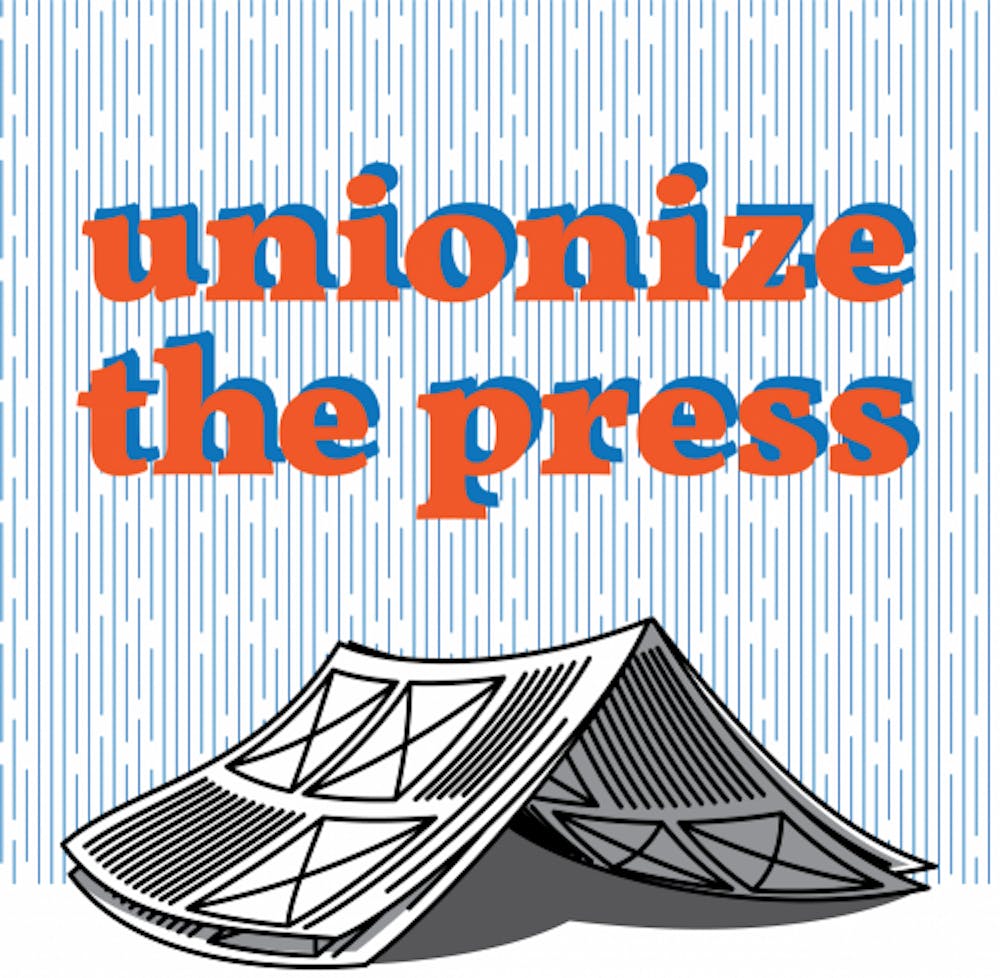The following reflects the majority view of the Editorial Board of The Miami Student
On Sunday night, The Washington Post aired its first Super Bowl ad. It cost more than $10 million, and was narrated by superstar actor Tom Hanks. The spot highlighted the importance of a free press and always having a reporter on hand.
It was an inspiring ad about the importance of journalists. But the reality is, journalism is dying. That $10.5 million could have paid for the salaries of over 140 reporters for a year, according to some back-of-the-napkin math by angry journalists on Twitter.
As many as 2,100 people who work in the media industry have been laid off in the past month due to falling budgets. Major online publications such as Vice Media, HuffPost and BuzzFeed have cut between seven to 15 percent of their workforce. The Gannett Company, which owns over 1,000 daily newspapers, including the Cincinnati Enquirer, laid off 400 journalists nationwide.
Data from the Bureau of Labor Statistics shows reporters are losing their jobs faster than coal miners.
The cuts at regional papers are nothing new, as small papers have been slowly shrinking over the past decade due to the growth of online media. But now, even online media is struggling because of the disparity between millions of dollars given to the upper management and meager salaries of reporters everywhere.
As newsroom numbers dwindle, there are fewer journalists to do the demanding and often-thankless job of reporting the news. The few left are overworked and underpaid as they are forced take on the responsibilities of those who have been laid off. Quality journalism cannot survive if this trend continues, and with this slow death comes the rise of misinformation and ignorance that damages our democracy.
 Journalists need to act to protect themselves. Workers everywhere need to protect themselves. Journalism is not alone in being eaten alive by profit margins. Journalists must demand what they are due, and unionize their workplaces.
Journalists need to act to protect themselves. Workers everywhere need to protect themselves. Journalism is not alone in being eaten alive by profit margins. Journalists must demand what they are due, and unionize their workplaces.
Unionizing with the Writers Guild of America enabled the journalists laid off at Vice to get better severance deals. In their case, the writers walked away with paid-out time off and severance.
Unions give a paper's staff a way to advocate for themselves. Unionizing helps people negotiate better wages, healthcare, child care and severance packages if layoffs occur. It also ensures that every member of the staff is protected -- from reporters to photographers and designers. If more newsrooms unionize, the men and women who work for the free press will be free from fear of living in poverty and losing their livelihood unceremoniously.
The oft-referenced solution of subscribing to local and regional newspapers is one important step the general public can take to safeguard the free flow of information. Readers must support their local reporters, those individuals with a vested interest in protecting the communities in which they live and work.
Media subscriptions are not unreasonably expensive. A subscription to the Cincinnati Enquirer starts at $13 per month, which is roughly the same price as a standard Netflix subscription. For the same price as access to all ten seasons of Friends, readers can connect to their community through stories like the Enquirer's Pulitzer-winning coverage of heroin in southwest Ohio.
Enjoy what you're reading?
Signup for our newsletter
In the past two years, the press has been under siege by slams of "fake news" and claims of elitism. Online harassment and death threats have become part of the day-to-day for many journalists. Even The Miami Student has a consistent band of trolls harassing our editorial staff in Facebook comments.
If world events in the past two years have taught us anything, it is that we need journalists to hold those in power accountable. The information journalists give us is powerful, and allows us to be more informed citizens who can make informed decisions and cast knowledgeable votes. That is why journalists need to take measures to protect themselves, and the public needs to take steps to protect journalists. One may not survive without the other.
Newsrooms everywhere must unionize and people who even remotely care about democracy must subscribe to local and regional news if we ever have a shot at taking on the structural inequalities facing modern democracy. Our success is interdependent, and everyone has a stake in this fight.
Correction: An earlier version of this editorial said BuzzFeed journalists were unionized. They were not, because CEO Jonah Peretti thought they just "weren't the right fit."




